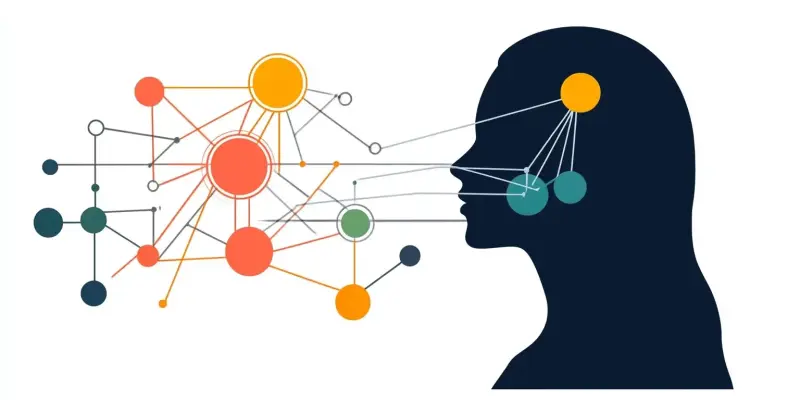The Machine Learning and Data Science (MLDS) minor at Northwestern Engineering has become a pivotal program for engineering students, equipping them with a robust set of skills and knowledge necessary for navigating the increasingly data-driven world.The minor is celebrated for its multidisciplinary approach, practical industry applications, and the profound impact it has on students’ professional trajectories. By fostering adaptability and critical thinking, the MLDS minor prepares students to tackle complex problems across various industries, underscoring its value in modern engineering education.
Equipping Students with Practical Skills
Multidisciplinary Composition
The MLDS minor at Northwestern Engineering is distinctive in its ability to attract students from all nine departments within the McCormick School of Engineering.This diverse cohort fosters an enriching environment where students can share their unique perspectives and expertise, leading to innovative solutions and advancements in technology. The blend of disciplines encourages lateral critical thinking, challenging students to approach problems from multiple angles and integrate various methodologies. This cross-disciplinary collaboration not only enhances the learning experience but also mirrors the complexity and interconnected nature of real-world challenges, preparing students for diverse professional environments.
Diverse Projects
Students enrolled in the MLDS minor engage in a wide array of projects that highlight the versatility and applicability of data science and machine learning techniques. These projects range from analyzing environmental data, such as the impact of air pollutants on the climate, to examining performance metrics in sports, including Formula 1 racing and NCAA/NBA basketball. These diverse applications demonstrate how the skills acquired in the MLDS minor are relevant and valuable across multiple sectors.Through these hands-on projects, students gain practical experience in data collection, analysis, and interpretation, equipping them with the essential tools to tackle industry-specific challenges effectively.
Practical Applications in Industry
Real-World Success Stories
The impact of the MLDS minor is evident in the success stories of its graduates. Joey Patronik, an industrial engineering analyst at United Airlines, attributes his ability to handle unclean data and utilize various tools to the skills he developed in the MLDS program. His role requires analyzing data from multiple sources, and the minor equipped him with the adaptability and technical proficiency necessary for such tasks. Similarly, Hannah Wilks, a third-year mechanical engineering student, successfully completed a summer internship at Lightshift Energy by leveraging the skills she acquired in the MLDS minor. She built a comprehensive database, developed an efficient algorithm, and integrated an API for battery energy system project development, showcasing the minor’s practical applications in real-world industry scenarios.
Adaptability in Different Roles
One of the key strengths of the MLDS minor is its emphasis on developing adaptable graduates capable of excelling in various roles within data-driven industries. Students are trained to handle unclean data, employ different computational tools, and adapt to diverse platforms, enabling them to meet the dynamic demands of modern workplaces. The minor’s curriculum ensures that students acquire a strong foundation in both fundamental principles and advanced techniques, fostering a versatile skill set.This adaptability is crucial as industries continually evolve, and the ability to navigate and leverage new technologies becomes increasingly important for career advancement and innovation.
Expanded Curriculum Tracks
Diversity in Tracks
Initially launched as the data science and engineering minor, the MLDS program has since expanded to offer three distinct specialization tracks: machine learning, data science, and a hybrid option.This expansion provides students with the flexibility to tailor their education according to their interests and career aspirations. The data science track focuses on the design and development of data pipelines, data extraction, cleaning, analysis, and quality evaluation, along with strategies for leveraging data-driven insights. The machine learning track, designed for non-Computer Science (CS) majors, delves into algorithms like linear/nonlinear regression, neural networks, and decision trees to train models on large datasets.The hybrid track combines essential skills from both fields, including data structures and algorithms, fundamental principles of data science, and machine learning.
Core Curriculum and Electives
The MLDS minor offers a comprehensive curriculum that includes fundamental computational and statistical methods, providing students with a solid foundation in data science and machine learning. In addition to core courses, students can choose from a range of electives tailored to their interests and career goals. Electives cover diverse topics such as computational genomics, deep learning, information visualization, optimization, and statistical pattern recognition. This allows students to customize their learning experience and gain expertise in specific areas of interest.The curriculum’s flexibility and breadth ensure that graduates are well-equipped with both the theoretical knowledge and practical skills necessary to excel in various data-driven roles across different industries.
Building a Community
Social and Career-Building Events
The MLDS minor emphasizes the importance of community and professional development through various social and career-building events. These initiatives are designed to foster connections among students, provide industry insights, and offer networking opportunities. Activities such as industry panels, guest speaker seminars, and social gatherings allow students to interact with professionals, gain valuable knowledge, and discuss emerging trends and challenges in data science and machine learning.These events not only enhance the learning experience but also prepare students for successful careers by exposing them to real-world applications and professional networks.
Leadership and Program Development
The Machine Learning and Data Science (MLDS) minor at Northwestern Engineering has emerged as a critical program for engineering students, providing them with a comprehensive set of skills and knowledge vital for thriving in our increasingly data-centric world. Esteemed for its interdisciplinary methodology and practical relevance to the industry, the minor significantly influences students’ career paths. By promoting adaptability and analytical thinking, the MLDS minor equips students to address complex challenges across diverse fields, highlighting its importance in contemporary engineering education.Furthermore, the program’s emphasis on hands-on experiences ensures that students can apply theoretical concepts to real-world problems. The incorporation of current industry tools and techniques teaches students to develop meaningful insights from data, creating a foundation for innovation. Overall, the MLDS minor plays a key role in preparing future engineers to be leaders in their fields, capable of making informed decisions and significant contributions in an array of industries.

